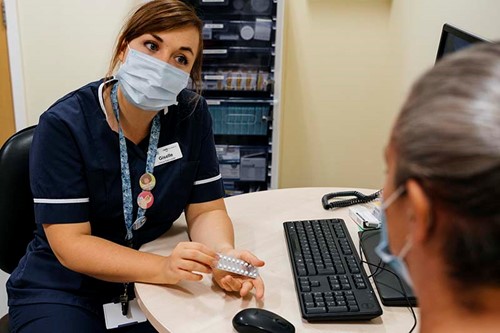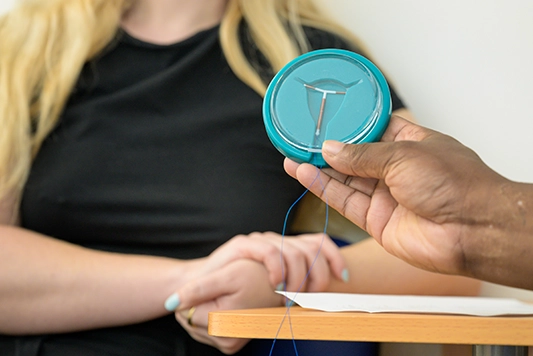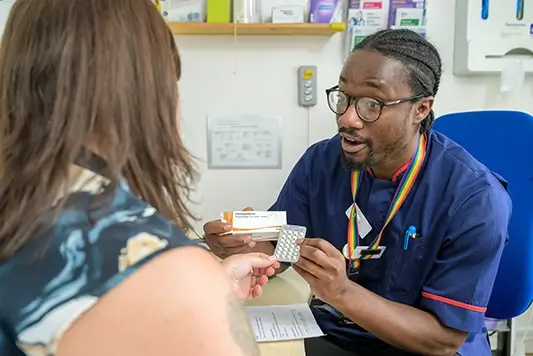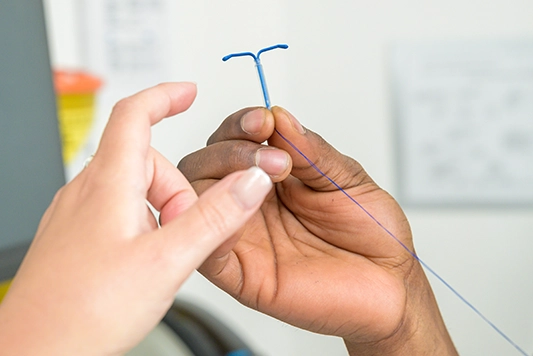The progestogen-only contraceptive pill or mini pill

The progestogen-only pill or mini pill
There are two types of contraceptive pill: the combined pill, and the progestogen-only pill, also known as the ‘mini pill’. The progestogen only pill is a daily tablet that contains one hormone: progestogen.
The hormone makes it harder for sperm to get into the uterus (womb) and may also change the lining of the uterus so an egg cannot develop in it. It sometimes prevents an egg from being released by the ovaries each month.
Video – The progestogen-only pill
Would you like to find out everything you need to know about the progestogen-only pill (mini pill) in under two minutes? We’ve created this short explainer video, filled with information about the mini pill including:
– What it is
– How effective it is in protecting against pregnancy
– Advantages
– Disadvantages
– Risks
Effectiveness of the mini pill:
The pill works well at preventing pregnancy. However, its ability to stop a pregnancy largely depends on a person using it properly.
Perfect use: 99% effective. Around 1 in 100 people will get pregnant in a year when using the progestogen-only pill correctly.
Typical use: around 91% effective. Around 9 in 100 people will get pregnant in a year.
How long does the mini pill take to work?
If you start to take the mini pill during the first five days of your period, you will be protected against pregnancy immediately.
If you start to take the mini pill on any other day, you will not be protected against pregnancy until you’ve taken the pill for two days.
If you haven’t quite made up your mind about contraception, you may want to consider a temporary or ‘bridging’ method to get you from now until you get the method of your choice without putting you at risk of an unwanted pregnancy.
The mini pill is the perfect ‘bridging method’, due to how quickly it protects against pregnancy.
Advantages, disadvantages and side effects of the mini pill
Your period may become lighter, or stop altogether.
It can be used when you are breastfeeding.
Your fertility will return to normal immediately after you stop using the mini pill.
You can start it straight after childbirth, abortion or miscarriage.
It is not used during sex, and so will not affect spontaneity.
There are less risks associated with its use than with the combined pill. To find out more about the risks associated with the combined pill, read our blog: “The contraceptive pill and blood clots: everything you need to know”
It has to be taken once per day, at the same time. Forgetting to take the pill on a daily basis could make it fail.
Some users develop more frequent or irregular bleeding while taking the mini pill.
Some users may experience headaches, breast tenderness and acne, but these symptoms generally get better within the first few months of using the pill.
The pill may not work if you have vomiting and diarrhoea.
The use of some medications, such as those for seizures (fits), HIV or for tuberculosis, can make the pill less effective. Check with your medical provider if your medications are compatible with use of the pill.
Condoms are the only contraceptive method which protect against sexually transmitted infections. To ensure protection from both pregnancy and infection, we recommend “dual protection”. This means using an internal or external condom in addition to the contraceptive method of your choice to prevent pregnancy.
Where can I get the mini pill?
In the UK, you can get the mini pill for free from sexual health clinics, some GP surgeries and some young people’s services.
Following its reclassification, you can also buy the mini pill directly from a pharmacy, without a prescription.
At MSI UK, we primarily offer contraception services as part of your abortion care. We also offer contraception services in some parts of England for people who have not accessed our abortion services. From these clinics, people can access LARC (Long-Acting Reversible Contraception, such as the coils, the implant and the injection) with us without having had an abortion.
Follow the link to find out more: MSI UK Contraception Clinics
What to do if you miss a mini pill
What to do if you miss a mini pill depends on when you missed your pill, how many pills you have missed, and whether your mini pill contains desogestrel or not.
For more information on what to do if you miss a mini pill, read the NHS website: What should I do if I miss a pill?
Learn more about contraception
Visit the pages below to find a comparison tool to help you find the right method for you, and to learn more about short-acting and long-acting reversible contraception.

Which method is right for me?
Find a contraception comparison tool that can help you find the right method for you.

Short-acting contraception
Short-acting methods include the contraceptive pill, patch and ring.

Long-acting contraception
Long-acting contraceptive methods include the coils, the injection and the implant.




